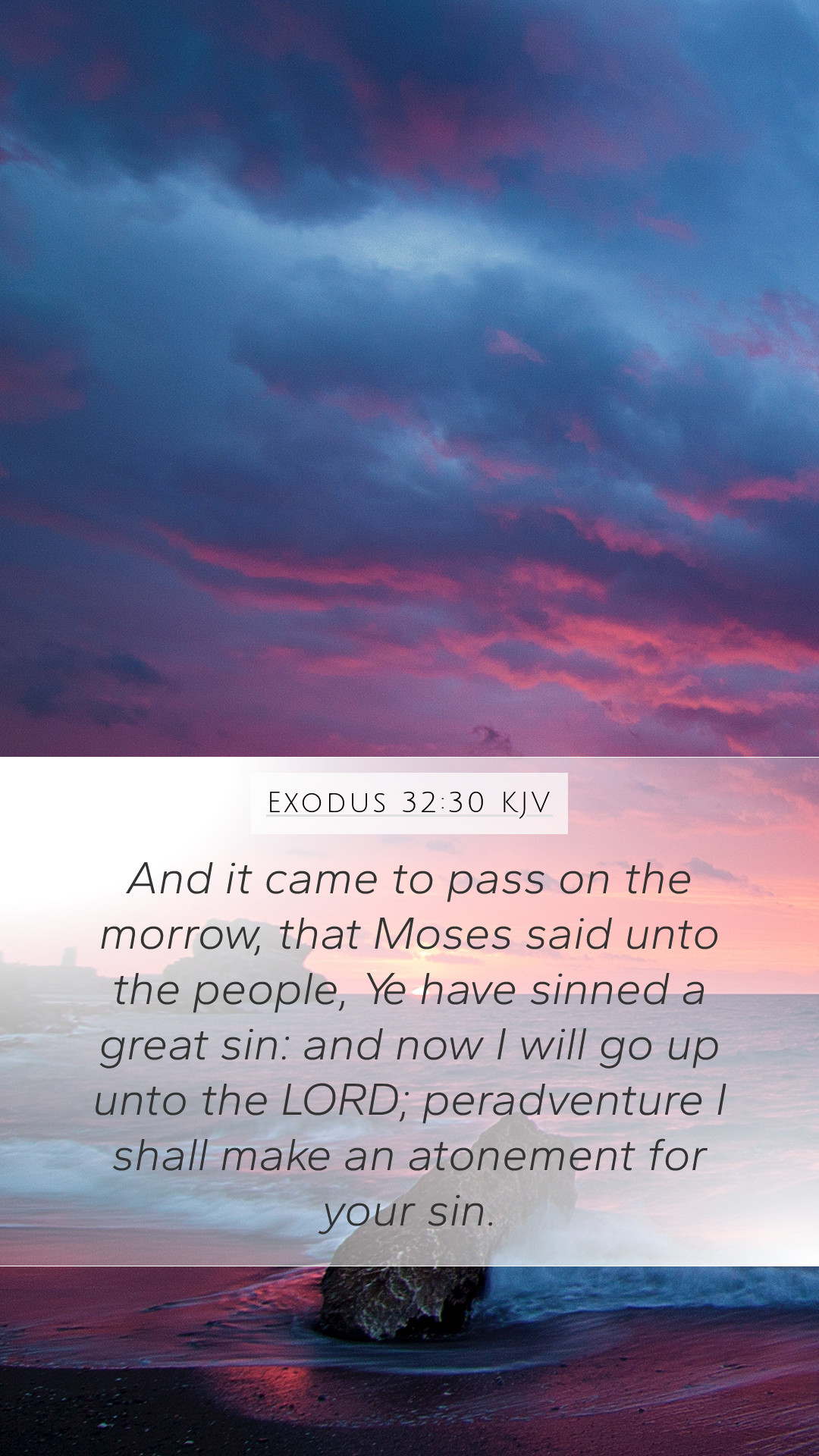Bible Verse Meanings: Exodus 32:30
Verse reference: Exodus 32:30 states, "So Moses returned to the Lord and said, 'Oh, what a great sin these people have committed! They have made themselves gods of gold.' This passage emerges during a pivotal moment in Israel's history, underscoring the themes of sin, intercession, and divine justice.
Understanding Exodus 32:30
This verse reflects both the gravity of sin and the relationship between Moses and God. To better grasp its significance, let’s delve into the insights provided by various public domain commentaries, crafting a unified understanding:
- Matthew Henry's Commentary:
Henry disposes of the serious sin that the people have committed by creating a golden calf to worship. He emphasizes Moses’ role as an intercessor for the Israelites, noting that he understands the severity of their transgression. Henry points out that the act of crafting idols reveals a fundamental rejection of God’s commandments and highlights the dangers of straying from faith in challenging circumstances.
- Albert Barnes' Notes:
Barnes elaborates on verse 30 by contextualizing the previous events where the people, anxious in Moses' prolonged absence, resorted to idolatry. He underscores the desperate need for a mediator, likening Moses' return to God as pivotal in seeking mercy for the people. Barnes mentions the nature of sin and its repercussions, while also exploring the significance of Moses' plea for atonement.
- Adam Clarke's Commentary:
Clarke provides an extension of the narrative, detailing the emotional turmoil Moses experiences in confronting God about the people's failure. He reflects on the implications of their sin, highlighting the need for repentance and the consequences of disobedience. Clarke discusses the importance of turning back to God after sinning, and the persistent hope for divine mercy amidst rebellion.
Combined Insights
In combining these commentaries, we gain a clearer picture of Exodus 32:30. This verse serves as a critical point where Moses expresses the depth of Israel’s sin and his commitment to seeking their redemption. His plea to God reveals an understanding of the nature of sin: it frequently leads to severe consequences but can be countered with sincere repentance and intercession.
Significance of Exodus 32:30 in Scripture
This verse is not isolated in its message but resonates throughout the broader narrative of the Bible. Here are some significant themes and cross-references related to Exodus 32:30:
- Deuteronomy 9:20: Moses’ plea emphasizing God's mercy towards the Israelites in light of their waywardness.
- 1 John 1:9: The promise of forgiveness when we confess our sins, reflecting the need for repentance.
- Psalm 106:19-23: A historical account detailing Israel’s rebellion and the crucial intercessory role of Moses.
Application of Exodus 32:30
Understanding Exodus 32:30 can lead to personal reflections and applications in daily life:
- Recognizing Sin: Acknowledgment of our own faults and shortcomings is vital in our spiritual journey.
- Seeking Intercession: Just as Moses interceded for Israel, we should embrace prayer and mediation for ourselves and others.
- God's Mercy: The assurance of divine mercy encourages continual return to God, regardless of our transgressions.
Conclusion
Exodus 32:30 serves as a compelling reminder of the gravity of sin and the essential role of intercession in seeking God's grace. By studying this verse and its broader implications, individuals can glean valuable lessons on repentance, mediation, and the nature of God's forgiveness. Through engaging with such Scripture, we enrich our Bible study insights and enhance our understanding of God’s relentless love for His people.


